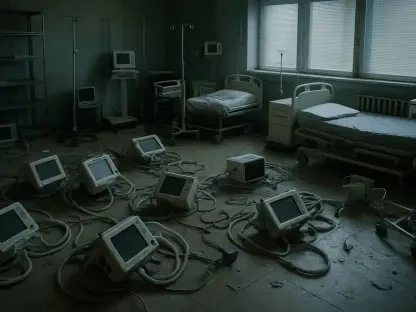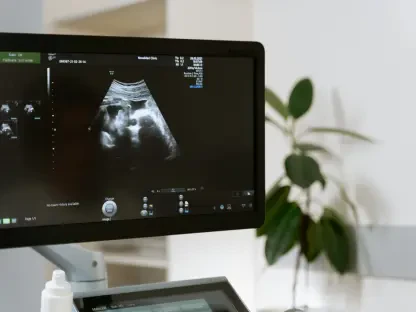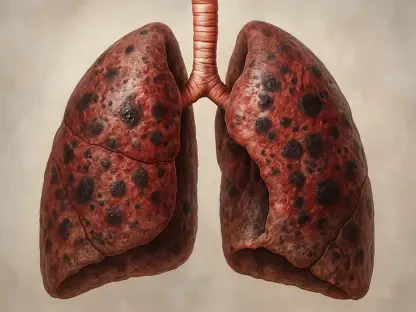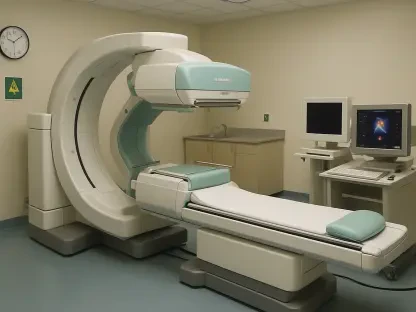In recent years, there has been a growing focus on the safety and security of nurses working in hospitals across Ireland, underscored by alarming incidents and statistics. The Irish Nurses and Midwives Organisation (INMO) has strongly emphasized the urgent need for hospitals to enhance their security protocols to safeguard these healthcare professionals. Reports indicate that daily, nurses face both physical and verbal assault in their work environments, which raises profound concerns about the effectiveness of current protective measures. Nurses, like Emma Ross from Dundalk, stress that safety is a fundamental right and not a mere privilege, highlighting the struggle to provide effective care amidst such precarious conditions.
Current Challenges in Hospital Safety
Day-to-Day Realities of Nurse Safety
A distressing statistic from recent data reveals that 12 nurses experience assaults daily within Irish hospitals, drawing attention to a critical problem in workplace safety. Incidents of physical violence aren’t limited to isolated areas but span across various hospitals, from major cities to smaller towns. Nurses from locations such as Waterford and Monaghan have reported severe incidents, including fractures and facial injuries. Such occurrences illustrate that even smaller medical centers are not immune to this widespread issue. The pervasive nature of these assaults extends beyond physical violence, with verbal abuse also being rampant, reflecting an urgent need for enhanced preventive measures.
The INMO’s annual conference has been a focal point for these discussions, where it was unanimously agreed that calls should be made to the Health Service Executive (HSE) to improve security and incident-reporting systems. The collective voice of the nurses demands a reassessment and restructuring of the security protocols that govern their workplaces. Implementing a more robust and comprehensive approach to security would not only protect the nurses but also contribute to a safer and more efficient work environment, facilitating better care for patients. The broader healthcare community is beginning to understand the vital connection between nurse safety and patient care quality.
Inadequate Response from Hospital Management
Despite repeated calls for action, individual hospital management has been slow to address these safety concerns, leaving nurses vulnerable in their working environments. Health Minister Jennifer Carroll MacNeill has indicated that each hospital should manage its own security requirements, yet this decentralized approach appears inadequate in confronting the issue’s scale. The variance in security measures across hospitals points to a lack of cohesive policy and uniform safeguarding standards, thereby perpetuating inconsistencies in the protection afforded to nurses.
One critical limitation is the reporting and tracking of violence-related incidents, where nurses often face barriers to effectively recording these occurrences. Clear and transparent reporting systems are crucial to understanding and subsequently addressing the full extent of workplace violence. There’s a palpable urgency for more structured oversight and accountability to ensure that these systemic weaknesses do not continue to compromise healthcare professionals’ safety. Addressing management inertia is vital to drive the necessary changes that will create a uniformly safe environment across all healthcare facilities.
Systemic Implications and the Need for Reforms
Stakeholder Perspectives and Concerns
The narrative surrounding nurse safety is enriched by varied perspectives and collective concerns expressed by different stakeholders, including the government, healthcare organizations, and the nurses themselves. Many, like Emma Ross, argue that inadequate safety measures severely hinder their ability to provide uncompromised care. The consensus among healthcare workers echoes the sentiment that safeguarding professionals is indispensable for maintaining quality patient care. Furthermore, a survey by the INMO showed that one in five nurses had faced physical violence, and over half reported enduring aggressive behavior, signaling the widespread nature of these challenges.
Minister Carroll MacNeill has voiced concern over these incidents, particularly highlighting the unacceptable nature of racially motivated abuse. Her acknowledgment of the issues underscores the need for more profound systemic reforms that encompass training, policy changes, and continued dialogue among all parties involved. By fostering an environment where nurse safety is a priority, hospitals can work towards achieving a workplace that truly respects and protects its staff, ensuring they can perform their duties effectively.
Path Forward in Enhancing Safety
Recently, Ireland’s hospitals have increasingly prioritized the safety and security of nurses, prompted by both unsettling incidents and revealing statistics. The Irish Nurses and Midwives Organisation (INMO) has been vocal about the urgent requirement for hospitals to bolster their security measures to protect these vital healthcare workers. Persistent reports highlight the disturbing fact that nurses routinely face physical and verbal assaults in their workplaces, raising significant concerns about the adequacy of existing security protocols. Emma Ross, a nurse from Dundalk, asserts that safety should be recognized as a fundamental right rather than merely a privilege, emphasizing the challenges in delivering effective care under such unstable conditions. The INMO advocates for comprehensive improvements, urging a reevaluation of current policies to ensure that nurses can conduct their duties in a secure environment, ultimately benefiting both healthcare professionals and the patients they serve.









